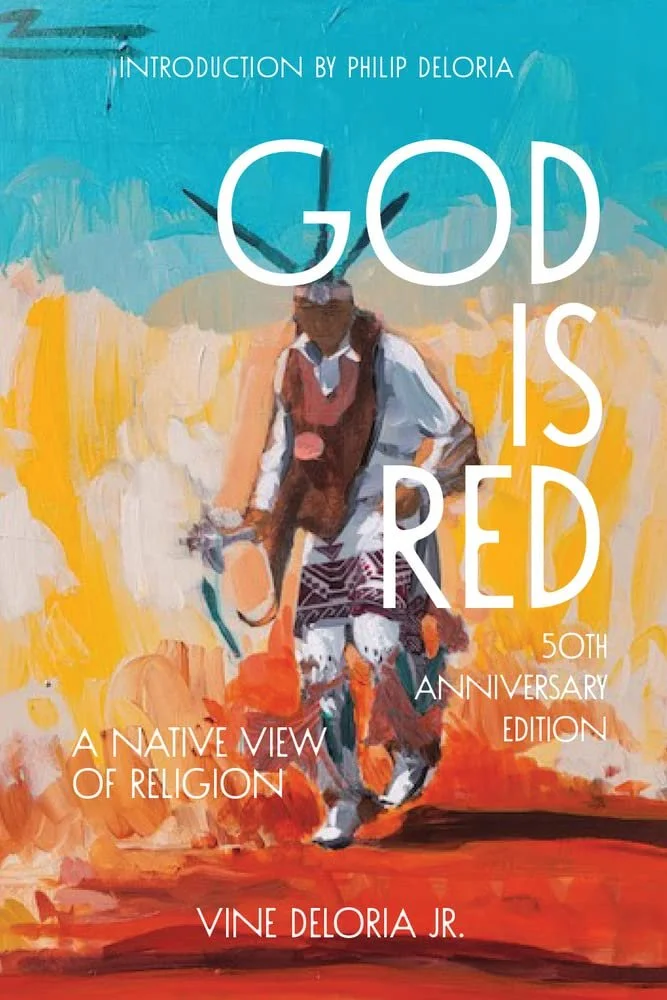Good Neighbor: Expanding Our Vision of Community and Creation
Eloheh Farm with Dr. Randy and Edith Woodley (CCDA 2024)
Dr. Chris Townley has been a trusted friend, accomplice, colleague, and pastor for over a decade, faithfully engaging in the good, hard work of justice and community building. As Erin confidently affirms, "He’s the only White man I trust." We are honored to have him serve on our Board of Advisors for BLK South. Learn More
Today’s task is to unpack BLK South’s value, Good Neighbor. We summarize the value this way: We believe that being a good neighbor is equivalent to being a good friend -- a mutual love, care, and concern for one another is foundational to ethical living.
I want to expand on this, open it up for us, broaden our vision of neighbor. But first, a story:
Twenty-eight years after their death I found myself crying in a convention center lobby. This was the first time I had ever shed a tear for these friends from my childhood, my neighbors. It was the “Spider Tree” I grieved most, but an entire family of a dozen or more old Oak trees were also forcibly uprooted, left to die, sliced and consolidated, in the Fall of 1996. I know most of us don’t often discuss chopping down trees with such language.
The day of the demolition is not one I remember. But I remember some of the days before he city came to cut them down. One friend, Lee, was the most adventurous of our group. Sometimes as I jumped at a low branch or gathered artifacts from the dirt I’d lose track of Lee among the leaves above my head. It must have been the result of the way late afternoon light was shadowed through the higher boughs, casting hideouts twenty feet off the ground. I wrote my name in the dust at the base with a broken branch, signing in like the famous athlete I would never become. Hanging from the branch I could reach, pretending it was a basketball rim.
Dreams lived in those trees and around them and among them. Decades of dreams, maybe even a century worth of dreams. Most of them a mystery. In order to arrive at the tree, it’d be too cliche to switch gears now and call it a dreaming tree, we navigated a path along a small seasonal creek on the backside of the neighborhood. The packed gravel trail is an apparition. I can no longer see, even in my dreams, how it guided us to these mighty Oaks.
My own memory of these trees and the way to find them is a dense fog. Unable to adjust my eyes to see any more than the remnant of that designated dirt path, a mythical grassy field waves me on, and the trees stand in a line with limbs reaching out from one to the other... to me. Spread wide, as if they were on the slowest walk imaginable, hand in hand, no rush to be anywhere but where they’ve been planted. Who will listen to the trees?
As Vine Deolria Jr. once asked, “Who will listen to the trees, the animals and the birds, the voices of the land?”
In fact, the voices of the trees have much to teach us about being good neighbors. Part of this is because much of the world has a tendency to find the natural world voiceless. From there, in particular in the West, we tend to disregard any who get in the way of progress in the most individualistic and capitalistic sense of the word. Humans harboring power and control are known for their uprooting ways. Sometimes it’s a stand of elder Oaks and sometimes it's a stand of elders. This is the root of gentrification, of dismissing the presence of those who are most marginalized in our society and thus neighborliness can be separated from home, the land, and the natural world.
To be a good neighbor, a good friend, is to embrace the fullness of the community of creation as our neighbor. From there, grown from the Earth, we seek to bear the fruitfulness of mutual love in action, care for the entire community, and concern for one another as the most wholistic vision for ethical living.
As we read Matthew 22:37-39 in the First Nations Version: An Indigenous Translation of the New Testament, we are given a grand vision of neighbor love, in which all of the community of creation are our neighbors, in which our love for one another is part of the reciprocal love we plant in the ground of our hearts, the community, and land upon which we live.
37 Creator Sets Free (Jesus) answered him, “‘You must love the Great Spirit from deep within, with the strength of your arms, the thoughts of your mind, and the courage of your heart.’ 38 This is the first and greatest instruction.
39 “The second is like the first,” he added. “‘You must love your fellow human beings in the same way you love yourselves.’”
Allow me for a moment to add a quick addendum to the description of our value. Perhaps, at least for a day, it can read like this:
We summarize the value of being a Good Neighbor this way: We believe that being a good neighbor is equivalent to being a good friend -- a mutual love, care, and concern for one another is foundational to ethical living with the entire community of creation.
Reflection Questions
How does expanding our understanding of 'neighbor' to include the natural world change the way we think about ethical living and community care?
In what ways can we better listen to and learn from the 'voices' of creation—trees, animals, land—when considering how to be good neighbors in our communities?
RECOMMENDED READING





